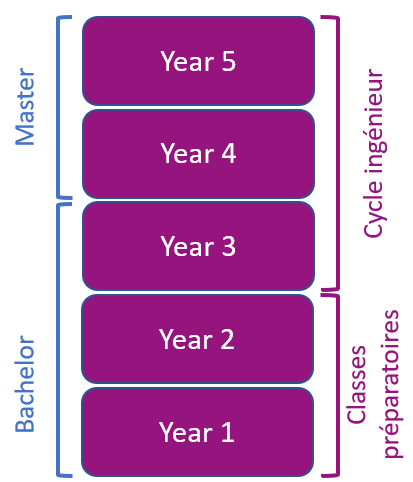Number of hours
- Lectures 12.0
- Laboratory works 15.0
ECTS
ECTS 2.5
Goal(s)
The goal of this course is the optimal constrained control of complex dynamical systems. Elements from control theory and optimization will be merged together in order to provide useful tools which will be further applied to various problems involving multi-agent dynamical systems and interconnected systems in general. Beside classic control challenges related to the centralized vs distributed vs decentralized approaches, the stabilization and the tracking performances of each agent, there are a series of constraints imposed by the interaction with the environment and between themselves (anti-collision, avoidance constraints) as well as solving a collaborative task (e.g., maintain a fixed formation). This is generally the case with vehicles evolving in the same physical space, collaborative robots or drones covering a certain area. Some application benchmarks like control and coordination of multiple drones, energy management in complex energy systems and water distribution networks are discussed.
Contact Ionela PRODANIonela PRODAN
Content(s)
1. An optimization-based approach for control of complex systems
1.1 Optimization-based control
1.2 Generic prediction models
1.3 Generation of a reference trajectory/profile
1.4 Set-theoretic elements
1.5 Mixed-integer representations in control design
2. Cooperative control of multi-agent dynamical systems
2.1 System description
2.2 Collision avoidance formulation
2.3 Area coverage for multi-agent systems in multi-obstacle environment
2.4 A tight configuration of multi-agent formation
2.5 Centralized MPC
2.6 Distributed MPC
2.7 Decentralized MPC
3. Stability analysis
4. Examples, simulations, benchmarks and applications
4.1 Flight control experiments of Unmanned Aerial Vehicles
4.2 Microgrid energy management
4.3 Decentralized supervision and control of water networks
Prerequisites
Algorithms and programming,
Linear and non-linear control,
Optimal and predictive control
Semester 5 - The exam may be taken in french or in english 

E1 : Oral exam (in English) of 20 minutes for a team of students.
Total time for the room: 1h30 to 3h, depending on the number of students.
E2 : Oral exam (in English) of 20 minutes and a report (in English).
The course exists in the following branches:
- Curriculum - EIS - Semester 5 (this course is given in english only
 )
) - Curriculum - EIS (Apprenticeship) - Semester 5 (this course is given in english only
 )
) - Curriculum - - Semester 5 (this course is given in english only
 )
)
Semester 5 - This course is given in english only 
[1] J.S. Shamma (2007): Cooperative control of distributed multi-agent systems, Wiley Online Library.
[2] J. B. Rawlings and D. Q. Mayne (2009): Model predictive control: theory and design, Nob Hill Pub., Madison, WI, USA.
[3] J. M. Maestre and R.R. Negenborn (2014): Distributed predictive control made easy, Springer.
[4] F. Bullo, J. Cortés, S. Martinez (2009):Distributed Control of Robotic Networks: A Mathematical Approach to Motion Coordination Algorithms: A Mathematical Approach to Motion Coordination Algorithms, Princeton University Press.
[5] M. Farina, G. Ferrari-Trecate, R. Scattolini (2013): Plug-and-Play Decentralized Model Predictive Control for Linear Systems, IEEE Transactions on Automatic Control, vol. 58(10), pp. 2608-2614.
French State controlled diploma conferring a Master's degree

What is a grande école ?
French engineering curriculum





